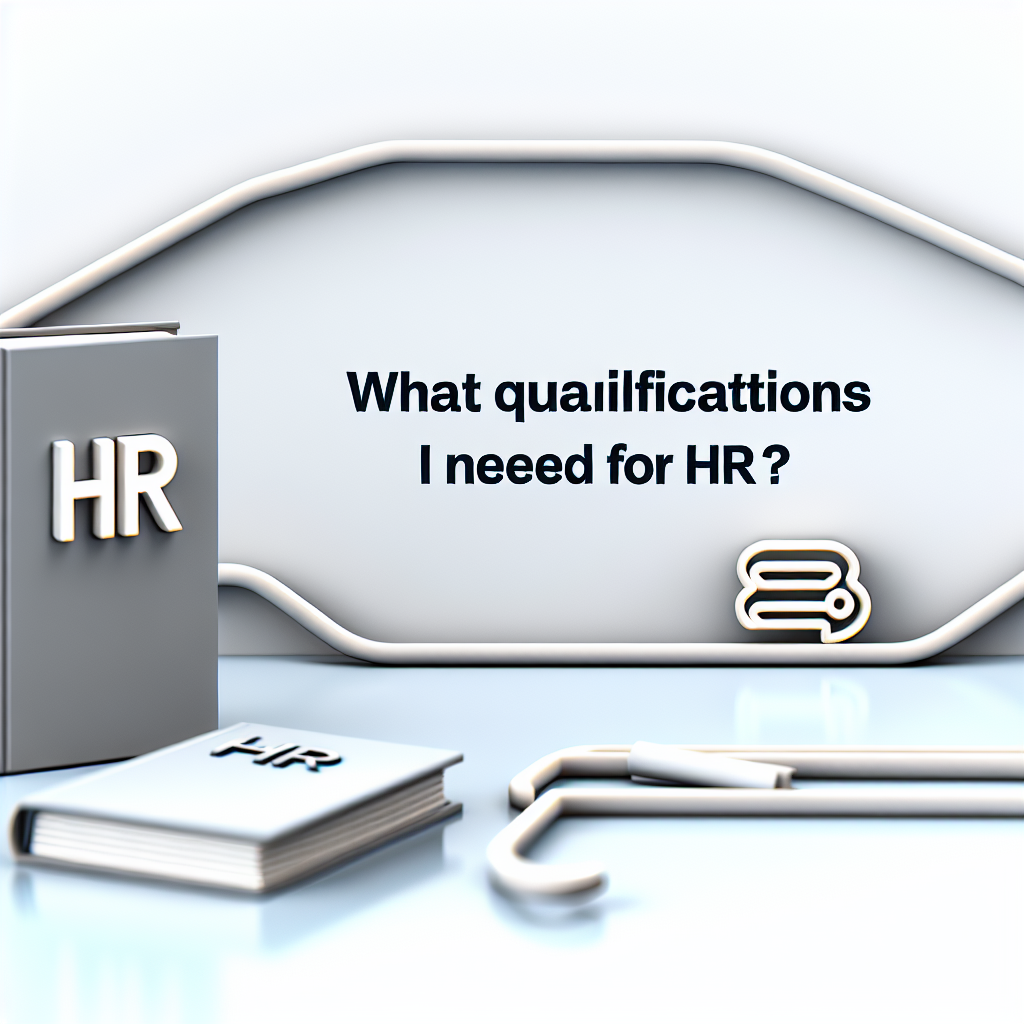
As Human Resource (HR) professionals navigate the demanding landscape of workforce management, the qualifications required for effective HR practice are of paramount importance. Understanding these requirements not only bolsters individual careers but also enhances the overall effectiveness of organisations. This blog post delves into the significance, current trends, and key benefits associated with HR qualifications, providing HR professionals with essential insights to thrive in their roles.
Significance of HR Qualifications
Human Resource Management (HRM) encompasses a broad range of responsibilities aimed at managing and optimising employee performance within an organisation. The significance of HR qualifications lies in their ability to provide a structured understanding of various HR functions, including recruitment, employee development, performance management, and compliance with workplace regulations.
HR Roles and Responsibilities
HR managers play a vital role in establishing and coordinating workplace programmes, policies, and strategies that promote employee well-being and organisational success. Their responsibilities include:
- Developing HR policies aligned with organisational goals
- Implementing training and development programmes for staff
- Managing recruitment and selection processes
- Overseeing employee relations and welfare
- Ensuring compliance with employment laws and regulations
With these responsibilities comes the necessity for appropriate qualifications that empower HR professionals to effectively carry out their roles.
Current Trends in HR Qualifications
The landscape of HR qualifications is continuously evolving, influenced by global developments and changing organisational needs. Here are some notable trends:
1. Global Perspectives
In the UK, a bachelor’s degree in Human Resource Management or a related field is often a fundamental requirement for HR positions. Conversely, in South Africa, candidates may begin their careers with a National Certificate: N4 in Human Resource Management (SAQA ID 66873) or N5, which aligns more closely with entry-level positions.
2. Emphasis on Postgraduate Studies
For those pursuing advanced HR roles, postgraduate degrees such as a Master of Human Resource Management have become increasingly appreciated. These qualifications equip professionals with strategic knowledge and advanced skills related to HR analytics and data management, aspects that are crucial in today’s data-driven HR environment.
Advanced studies not only enhance technical skills but also provide a comprehensive understanding of strategic HR practices, pivotal for leadership positions.
3. Rise of Flexible Learning Options
The increasing popularity of online and part-time studies has made HR qualifications more accessible for working professionals. This flexibility facilitates individuals transitioning into HR from other fields or seeking to deepen their expertise while maintaining employment.
According to research, engaging in online HR courses can lead to significant advancements in one’s career trajectory, allowing participants to adapt their learning to fit personal and professional commitments. More information can be found in [Benefits of Learning Human Resource Management Online](https://online.uj.ac.za/updates/study-human-resources).
Key Benefits of HR Qualifications
Obtaining relevant qualifications in HR provides a myriad of benefits, enhancing both personal development and organisational effectiveness. Here are some of the top advantages:
1. Career Advancement Opportunities
Acquiring the right qualifications can significantly bolster career progression in HR. For example, earning a Master of Human Resource Management degree often opens doors to strategic HR roles, which typically come with increased responsibilities and higher salary prospects.
2. Comprehensive Skill Development
HR courses cover a wide spectrum of topics essential for effective human resource management. Participants gain skills in areas such as:
- Recruitment and selection processes
- Employment law and compliance
- Employee development and management
- Industrial relations and conflict resolution
- Strategic organisational planning
These skills are transferable across various organisational settings, thereby increasing their marketability and adaptability.
3. Networking and Practical Experience
Participating in HR education and training provides invaluable opportunities for networking with peers and industry professionals. This exchange of experiences and ideas can significantly enrich one’s professional development, fostering relationships that could lead to potential career opportunities.
4. Holistic Approach to Human Resource Management
HR qualifications emphasise a holistic perspective on employee management, prioritising the ‘human’ aspects of HRM. This includes:
- Understanding employee well-being and engagement
- Implementing talent management strategies
- Facilitating organisational change management
Such a comprehensive approach is instrumental in creating a supportive work environment that fosters productivity and employee satisfaction.
5. Industry Recognition
Certification from prestigious bodies like the Chartered Institute of Personnel and Development (CIPD) and the Australian Human Resources Institute (AHRI) is highly regarded within the industry. These qualifications validate an individual’s expertise in HRM, enhancing credibility and professional standing.
For more information about required qualifications, explore resources such as [What Qualifications Do I Need for HR? – ECU Online](https://studyonline.ecu.edu.au/blog/what-qualifications-do-i-need-for-hr).
Conclusion
The qualifications needed for HR professionals are invaluable. They not only equip individuals with the necessary knowledge and skills to navigate the complexities of the HR function but also facilitate career progression and professional development. Given the current trends favouring flexibility and advanced educational opportunities, HR practitioners have myriad pathways to enhance their qualifications.
As organisations continue to evolve and adapt, ensuring that HR professionals possess the right qualifications will prove critical to fostering an effective workforce capable of meeting organisational goals. The continuing growth of the HR field presents exciting opportunities for professionals committed to lifelong learning and development.
By focusing on these trends and benefits, HR professionals can strategically position themselves for success, ensuring they are well-prepared to meet the ever-increasing demands of the workforce.
For more tailored insights into advancing your HR qualifications, visit [HR Courses UK: Enhancing Your Skills in Human Resources](https://www.lpcentre.com/articles/hr-courses-uk-enhancing-your-skills-in-human-resources) and [HR Short Course In South Africa – 2024/2025](https://safacts.co.za/hr-short-course-in-south-africa/).
Vadim Kouznetsov is a distinguished entrepreneur and the visionary founder and CEO of JobXDubai.com, the UAE’s rapidly expanding job board. Renowned for his expertise in bridging the gap between job seekers and employment opportunities, Vadim has become a leading authority in the recruitment and job market of Dubai.
